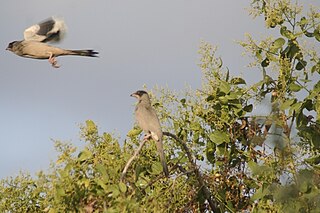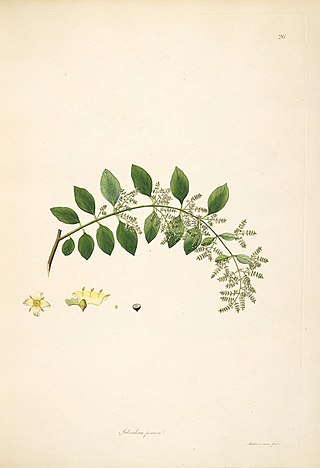Salvadora persica
Species of shrub From Wikipedia, the free encyclopedia
Salvadora persica or the toothbrush tree is a small evergreen tree native to the Middle East, Africa and India.[1] Its sticks are traditionally used as a natural toothbrush called miswak and are mentioned by the World Health Organization for oral hygiene use.[1][2]
| Salvadora persica | |
|---|---|
 | |
| Scientific classification | |
| Kingdom: | Plantae |
| Clade: | Tracheophytes |
| Clade: | Angiosperms |
| Clade: | Eudicots |
| Clade: | Rosids |
| Order: | Brassicales |
| Family: | Salvadoraceae |
| Genus: | Salvadora |
| Species: | S. persica |
| Binomial name | |
| Salvadora persica | |



Other names include arak, jhak, pīlu, and mustard tree.[1]
Etymology
The genus was named by the French botanist Laurent Garcin in 1749 after a Spanish apothecary, Juan Salvador y Bosca. The type specimen was collected in Persia, hence the species name persica.[1]
Description
Salvadora persica is a small tree or shrub with a crooked trunk,[3][need quotation to verify] typically 6–7 metres (20–23 ft) in height.[1] Its bark is scabrous and cracked, whitish with pendulous extremities. The root bark of the tree is similar in colour to sand, and the inner surfaces are an even lighter shade of brown. It has a pleasant fragrance, of cress or mustard, as well as a warm and pungent taste. The leaves break with a fine crisp crackle when trodden on. The tree produces small red edible fruits, juicy but pungent, in clusters.
Distribution and ecology
The plant is native to the Middle East and Africa,[4] and is found on desert floodplains, riverbanks, and grassy savannahs.[1] It has high tolerance for salty soils and can tolerate as little as 200 millimetres (8 inches) or less of mean annual rainfall, but it prefers ready access to groundwater.[1]
History and use
Salvadora persica stick, known as miswak or Esekon, is popular for teeth cleaning throughout the Arabian Peninsula, Iranian Plateau, as well as the wider Muslim world.[1][5]
Toothbrushes made from roots and small branches of about 3–5 mm diameter have been used for over 1000 years, especially by Islamic populations in India, Arabia and Africa. Several agents occurring in the bark and wood have been suggested as aids in prevention of dental caries [cavities], such as antimicrobial agents that suppress bacterial growth and the formation of plaque.[1]
The fresh leaves can be eaten as part of a salad and are used in traditional medicine.[3] The flowers are small and fragrant and are used as a stimulant and are mildly purgative.[3] The berries are small and barely noticeable; they are eaten both fresh and dried.[3] The wood of the Salvadora persica can be used for charcoal and firewood.[6] In Namibia, the mustard bush is used as drought-resistant fodder for cattle. The seeds can be used to extract a detergent oil.[4]
As of 2009, Botanic Gardens Conservation International has a total of eight Salvadora persica plants in conservation.[7]
See also
References
External links
Wikiwand - on
Seamless Wikipedia browsing. On steroids.

